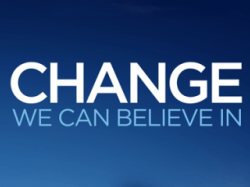By Dharsha Jegatheeswaran (3L)
A few weeks ago, I was lucky enough to attend my first ever RebLaw conference at Yale University (which you can learn more about by reading Michelle Hayman’s article in this edition of UV). It’s the largest social justice law conference in North America and brings together hundreds of students, lawyers, activists, and community organizers to discuss and debate pressing social justice issues and how to tackle them in the legal community. One of the great things about the conference is that you get to hear about social justice initiatives at various law schools around the States (though students disproportionately do tend to be from Ivy League schools). One thing I was particularly struck by was how these schools seemed to be encouraging and acting as a hub of activism; not just around issues directly affecting law students (i.e. tuition, financial aid, etc.) or strictly from a legal approach, but also on issues more broadly affecting the communities around them and through cooperation with non-legal activism in those communities.
It got me thinking about our own law student community here at UofT and why it is that we don’t have the same level of activism on issues that affect the communities of Toronto broadly, outside of our own immediate bubble of law school (and arguably Bay St). That’s not to say that there aren’t many individual law students who partake in and lead community activism– but rather that on a broader level, we just don’t have a burgeoning activist culture or an expansive definition of our community as a student body. I also don’t mean to discredit the many public interest clinics, working groups and internships we have; but those primarily permit law students to engage in a specific kind of legal activism that doesn’t see them necessarily engaging with non-legal community groups or promote discussion of those issues in the law school more broadly (though not due to any lack of effort on the part of those public interest programs).
One explanation I’ve heard is that maybe it’s because things are just a lot worse in the States and so law students there may be inspired to have a more activist approach and work with coalitions of community-based organizations. But I don’t know if I buy that argument entirely. We have many issues in Canada that warrant activism – from the recent changes to refugee/immigration laws to the impending Bill C-51. In fact, one of our own professors is a leading actor in the public challenge to Bill C-51 which is why it’s even more puzzling why there hasn’t been more activity among students at the law school concerning the bill.
I’m sure there are ultimately many reasons that explain this lack of community-based activism but one that I think may be particularly important is how we conceive of our law student community and its place in the broader Torontonian, and Canadian community. This article isn’t meant to provide any answers but simply to pose the question: as a law school student body should we be more integrated into the communities that make up Toronto and Canada and if so, is there something to be said for considering a more activist approach that builds relationships to community-based activism?
In my three years at this school, I have become particularly cognizant of the privileged and powerful position we are in as students here and as future lawyers. While I hope to see continued activism on the fronts that directly affect us (tuition, financial aid, articling positions, etc.), I personally think it would be a positive step to see the law school’s student body as a whole become more integrated into the communities that surround us, and use our power and privilege to further broader causes.






